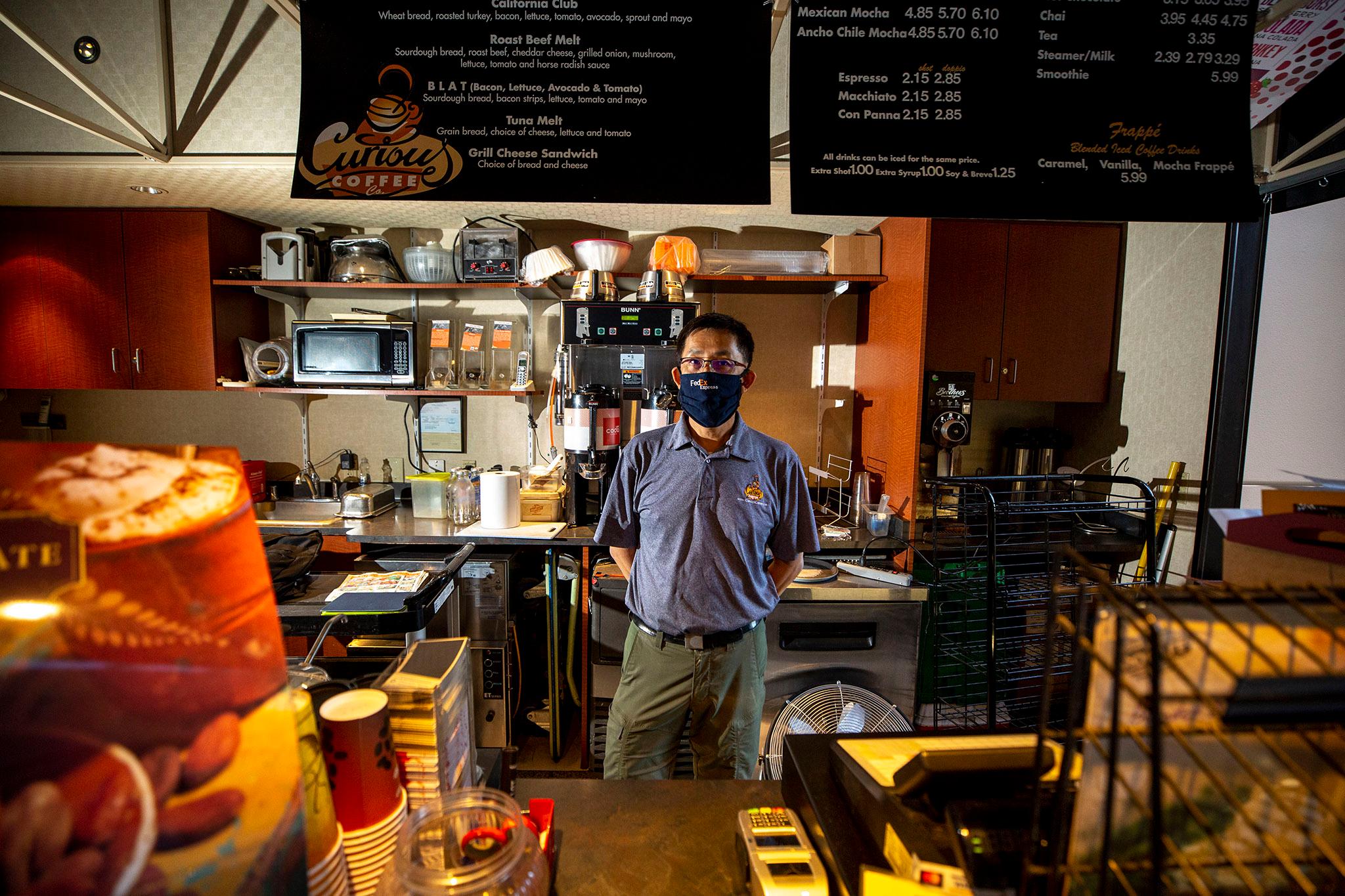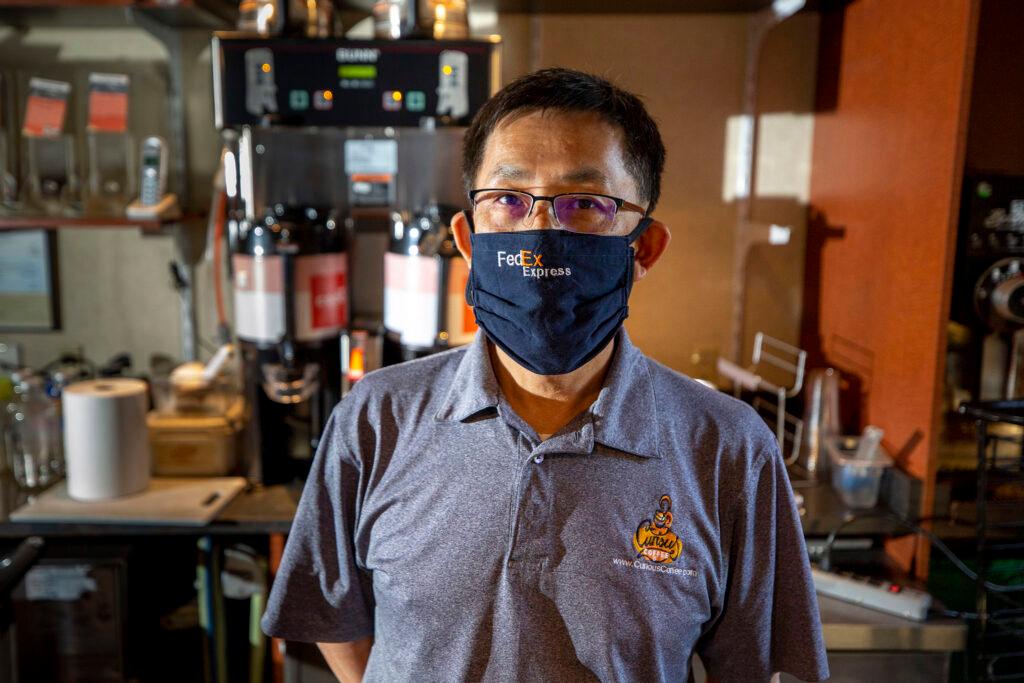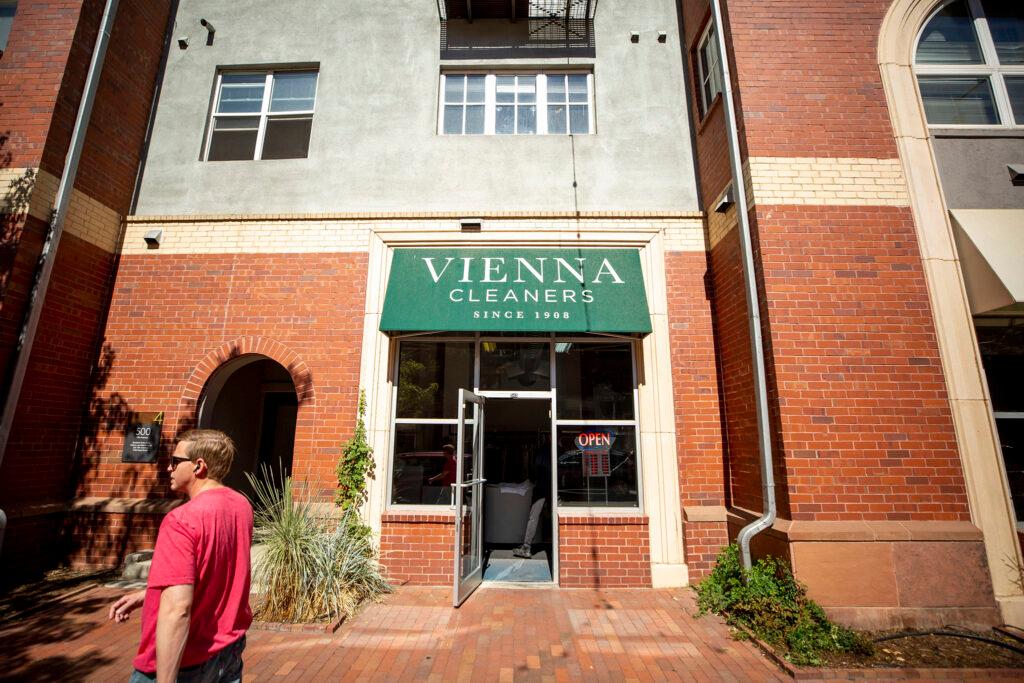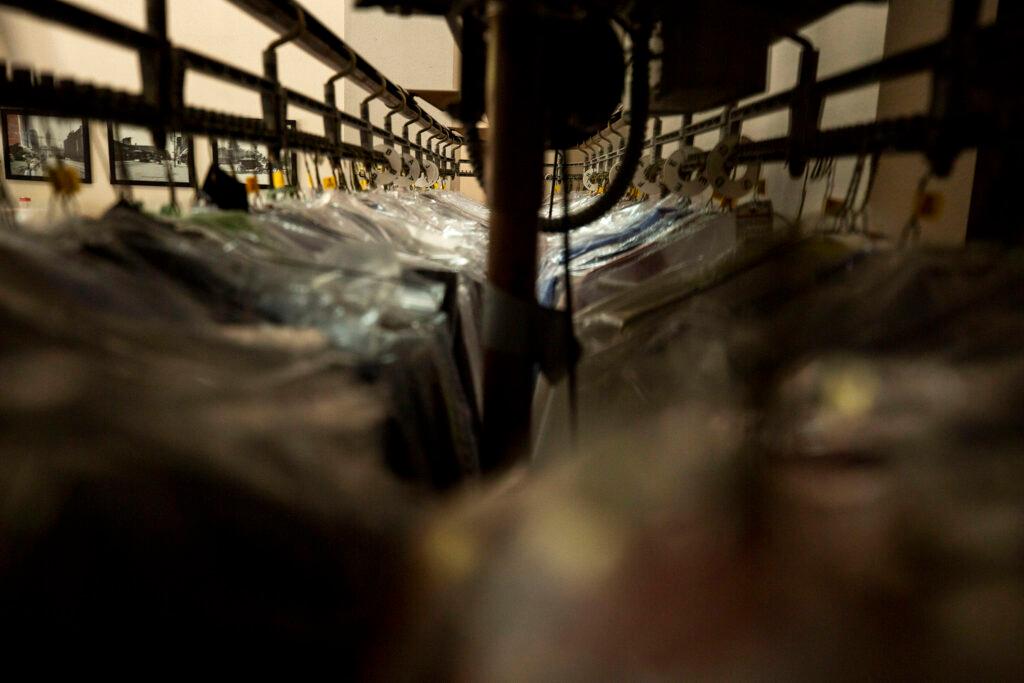
Chien Ming Ng has been selling coffee and sandwiches to office workers in the lobby of a building in downtown Denver for about a decade.
It was eerily quiet on a recent Monday during what should have been the morning rush hour.
“You can hear yourself echoing through the whole lobby … that’s scary,” Ng said. “Right now it's about 10 o’clock. Normally I have … between 40 to 60 customers. Now today, I haven’t gotten one at all.”
For many Colorado companies, remote work seems like it’s here to stay for at least a little while longer. That’s not great news for the coffee shops, sandwich places, after-work bars and other small businesses downtown that rely on steady weekday foot traffic to pay their bills.
The morning rush for Ng used to start at around 6:30 a.m. But Ng hasn’t seen a morning rush since the pandemic started in March last year. He’s not seeing a lunch rush, either. He used to do a steady business selling burritos, sandwiches and pastries, but he’s had to cut his menu way down. All the food was going to waste, he said.
Most days, he closes up by 11 a.m.
“There is virtually nobody over here during lunchtime; the building is pretty much empty,” he said.

Working remotely has a lot of benefits for some employees, but without their foot traffic, other businesses are suffering.
The move to working remotely is a welcome change for a lot of people. Office workers like the flexibility and not having to commute. It makes it easier to figure out child care — and saves money on things like parking and eating out. There’s a lot to like about working from home.
But the persistent shift away from the office has been hard on small business owners like Ng that need those people to stay afloat. Some businesses have already given up. And many others aren’t sure how much longer they can survive if people don’t return to the office soon.
Ng received a loan through the federal government’s pandemic aid program early on. But that money ran out a while ago, and he’s been living mostly off savings, he said.
Companies’ plans to return to the office have been repeatedly delayed. The property management at Ng’s building originally thought more people would return after the July 4 holiday.
When that didn’t happen, people were supposed to come back after Labor Day, Ng said. But he still hasn’t seen any change.
Judging from his conversations with customers that still trickle in, he’s not sure it will ever really go back to the way it was. A lot of the building’s workers — which include journalists, architects and government employees, to name a few — just aren’t coming back full time.
Even if office life does eventually go back to the pre-pandemic normal, Ng doesn’t see it helping his business for a while.
“Business will not be back to normal or able to generate revenue for at least another year and a half to two years … I say 2023,” Ng said.

Between new variants and hot, smoky weather, the envisioned post-vaccine return to downtown Denver never really materialized.
There are high hopes that the vaccine will speed up a return to some semblance of normalcy for downtowns across the country. But according to data from the Downtown Denver Partnership, there were actually fewer people coming downtown in August compared to July.
The group blames the hot and smoky weather, and the Delta variant, for the drop in pedestrian traffic. The report found there was a slight uptick in people returning to the office after Labor Day. Still, it’s nowhere close to pre-pandemic levels.
Jenny Scaff runs Vienna Drycleaners a few blocks from Ng’s building. It’s a family operation. Her sister is the owner. They’ve been in business for about 30 years, but they recently closed their original location. Scaff says it had been slow for a while.
“When the pandemic started it was a good time to say we’re done with that store, that location,” Scaff said.
They weren’t sure they were going to make it at all, and shut down the remaining store for about six months. Things have picked up recently — but Scaff says hours are still cut back. The store is open 8 a.m. to 4 p.m. during the week. It used to be 7 a.m. to 6:30 p.m.
Like Ng, Scaff says the lack of office workers is the biggest problem.

“They’re not getting their suits cleaned and their shirts laundered ... or not as often,” Scaff said.
She’s not sure what’s next for the family business — and for downtown generally.
“Especially if offices don’t open back up, I don’t know what could happen,” Scaff said.
But there has been one bright spot for her business — a boom in weddings that started this summer, Scaff said.
Kelly Wilson is there to pick up her husband’s tuxedo.
“We had a bunch of weddings this fall so it's on constant repeat,” Wilson said.
Scaff says she’s feeling optimistic despite the challenges.
“We’re trying, we’ve got to make it work … so that’s what we’re doing,” Scaff said.
- Colorado Companies With 100 Or More Employees Prepare To Roll Out Biden’s COVID Vaccine Requirement
- Colorado Office Workers Are More Uncertain Than Ever Over Return-To-Workplace Plans Amid The Delta Variant Surge
- Offices Had Employees Who Never Got To Work From Home — The Ones Who Kept The Buildings Cleaned And Maintained
- COVID Changed What Going Into The Office Looks Like. There’s No Clear Path To Return









